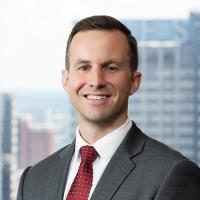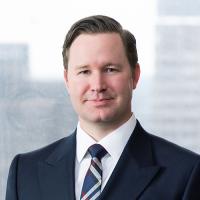On Monday, May 9, 2022, the NCAA Division I Council Working Group on Name, Image and Likeness released new guidance regarding third-party involvement in NIL activities. The guidance comes as we approach the one-year anniversary of the NCAA's Interim NIL Policy allowing NCAA student-athletes the opportunity to benefit from their NIL, which took effect July 1, 2021. Saul Ewing Attorneys have been closely following NIL developments, including tracking legislative efforts at both the federal and state levels here.
What You Need to Know:
- NIL "collectives" may be considered boosters subject to NCAA regulations prohibiting improper recruiting inducements and pay-for-play.
- The guidance is effective immediately. For violations that occurred prior to its release, the NCAA Division I Board of Directors has directed the enforcement staff to "pursue only those actions that clearly are contrary to the published interim policy, including the most severe violations of recruiting rules or payment for athletics performance."
In the months since student-athletes have been allowed to profit from their NIL, so-called NIL "collectives" have emerged as third-party entities consisting of individuals who work to funnel NIL opportunities to student-athletes. Largely unencumbered by NCAA rules thus far, NIL collectives have become an increasingly prominent influence in the NIL marketplace.
The most recent guidance focuses on how NCAA legislation applies to the Interim NIL Policy and boosters. A booster, also referred to as a "representative of athletics interests" in NCAA legislation, is any third-party individual or entity that promotes an athletics program or assists with providing benefits to recruits, enrolled student-athletes, or their family members. Boosters often work to support a specific NCAA institution. The guidance makes it clear that the definition of a booster includes NIL collectives that make NIL opportunities available to prospective and current student-athletes of a particular institution. The guidance is effective immediately. For violations that occurred prior to its release, the NCAA Division I Board of Directors has directed the enforcement staff to "pursue only those actions that clearly are contrary to the published interim policy, including the most severe violations of recruiting rules or payment for athletics performance."
The new guidance clarifies that NCAA rules governing boosters' involvement in recruiting activities also applies to activities now permitted under the Interim NIL Policy, meaning that boosters (and NIL collectives that qualify as boosters) are still prohibited from engaging in recruiting activities on behalf of a school and also from providing benefits to prospective student-athletes ("PSAs"). The guidance represents the NCAA's ongoing efforts to balance its longstanding prohibition against improper recruiting inducements and pay-for-play with new opportunities brought about by the ever-changing NIL landscape. The guidance provides the following specific guidelines:
Relating to PSAs
- Recruiting conversations between a booster (including an NIL collective that warrants booster status) and a PSA are not permissible.
- Boosters/NIL collectives may not communicate with a PSA, their families, or others affiliated with the PSA for a recruiting purpose or to encourage the PSA's enrollment at a particular institution.
- An NIL agreement between a PSA and a booster/NIL collective may not be guaranteed or promised contingent on initial or continuing enrollment at a particular institution.
- Institutional coaches and staff may not organize, facilitate, or arrange a meeting between a booster (including an NIL collective that warrants booster status) and a PSA, such as providing boosters with a recruiting list or watch list, including the NCAA Transfer Portal.
- Institutional coaches and staff may not communicate directly or indirectly with a PSA on behalf of a booster/NIL collective.
Relating to Current Student-Athletes
- An NIL agreement between a student-athlete and a booster/NIL collective may not be guaranteed or promised contingent on continuing enrollment at a particular institution.
Relating to Both PSAs and Current Student-Athletes
- NIL agreements must be based on an independent, case-by-case analysis of the value that each student-athlete brings to an NIL agreement, as opposed to providing compensation or incentives for enrollment decisions (e.g., signing a letter of intent or transferring), athletic performance (e.g., points scored, minutes played, winning a contest), achievement (e.g., starting position, award winner) or membership on a team (e.g., being on a roster).
The guidance puts NIL collectives on notice that they may be classified as boosters and subject to longstanding NCAA rules against improper recruiting inducements and pay-for-play. However, the guidance provides little information about how the NCAA will handle enforcement moving forward. The fact that the NCAA released this guidance indicates that NIL collectives have been engaging with PSAs and student-athletes in a way that the NCAA believes may run afoul of NCAA rules. Schools, student-athletes, and NIL collectives alike should keep a close eye on how the NCAA responds moving forward in this rapidly-evolving environment.
Saul Ewing will continue to monitor these developments. If you have questions about this alert or related issues, please reach out to your regular Saul contact or the authors.







